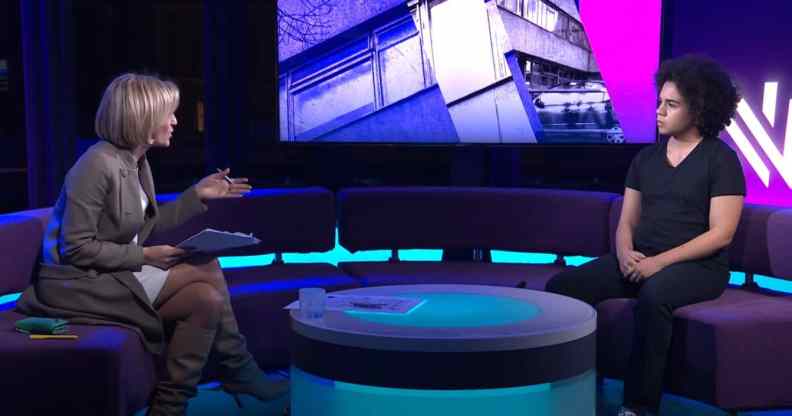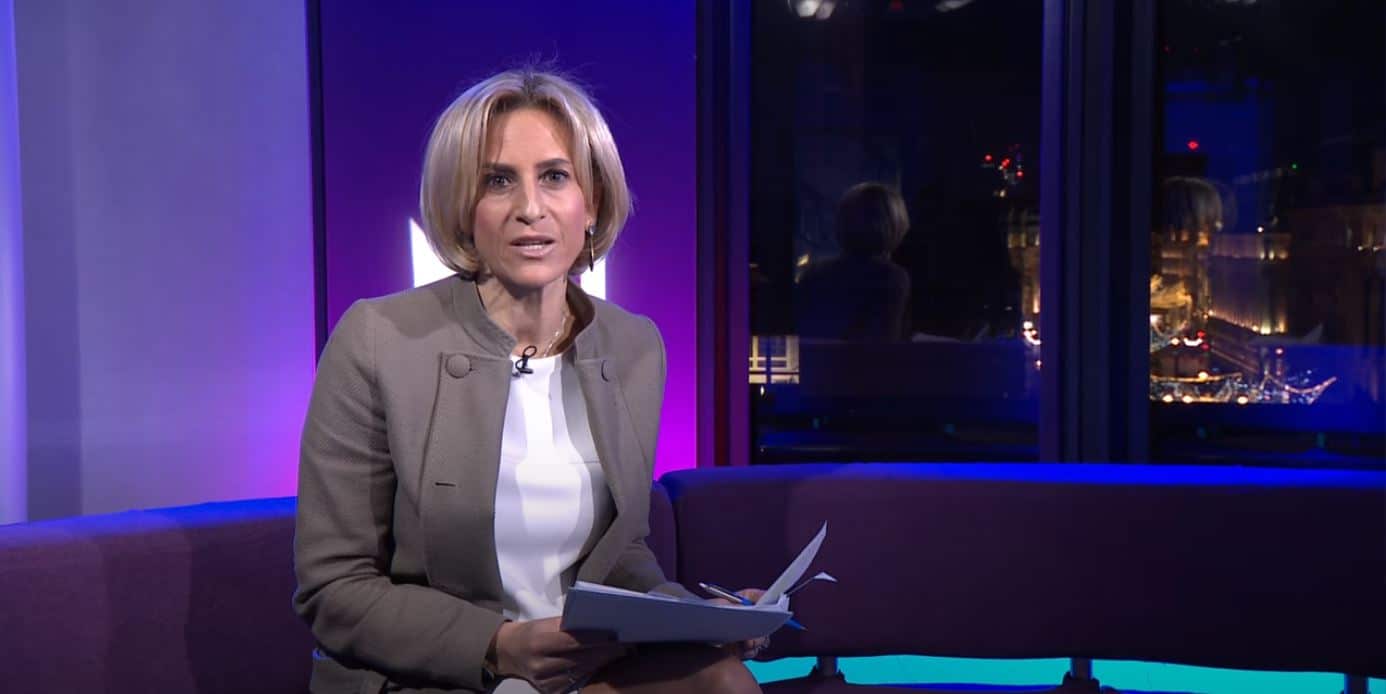BBC says it’s fine for Newsnight to cover trans issues without talking to a single trans person

The BBC says Newsnight does not need to feature transgender people in coverage of trans issues
The BBC has rejected complaints that Newsnight did not feature a single trans person during a discussion of trans healthcare.
Newsnight has aired a series of controversial segments on trans issues that do not feature any transgender people, most recently doing so in December in the wake of a High Court ruling that restricted the use of puberty blockers for trans children.
Despite the significant impact the ruling would have on trans people’s healthcare, the segment instead included interviews with plaintiff Keira Bell, who is not transgender, and Mermaids CEO Susie Green, who is the cisgender mother of a young trans woman.
Feminist campaigner Katy Montgomerie had asked the BBC why it did not feature any transgender people in the discussion of trans issues – but in a response, the BBC’s executive complaints unit suggested it was not necessary to do so.
BBC says it is ‘not necessary’ to include trans people in coverage of trans issues
The response says: “I appreciate the concern you have raised but I am afraid I do not share your view that it was necessary to include a contribution from a trans person bearing in mind the scope and focus of the Newsnight coverage.
“As you can see, due impartiality means taking account of the subject and nature of the matter under discussion when deciding which viewpoints need to be reflected.
“On this occasion, the focus was on the High Court decision and the consequences for young people receiving, or waiting for, treatment with puberty blockers.
“The editorial guidelines make it clear the requirement was to ensure the report, and the subsequent discussion, gave due weight to an appropriate range of significant views and perspectives which were relevant to the High Court decision.
“I am satisfied that was achieved on this occasion.”

The BBC says Newsnight does not need to feature transgender people in coverage of trans issues
A spokesperson for the BBC told PinkNews: “The ECU found that the item in question – which included perspectives from an LGBTQ+ charity – met BBC Editorial Guidelines on due impartiality. In all coverage we work to ensure a range of views and perspectives.”
BBC has faced controversy over trans coverage
Despite apparently not requiring trans people to be present in discussions of trans issues, the BBC’s editorial policy unit – which is distinct from the executive complaints unit – has previously intervened in coverage to enforce the presence of cisgender women expressing ‘gender critical’ viewpoints.
Last year, BBC bosses were challenged in parliament about apparent alterations made to online coverage of trans issues to include contributions from anti-trans campaigners, while PinkNews reported that a planned discussion on a BBC TV programme featuring an all-transgender panel fell apart after orders for a ‘gender critical’ cis woman to be included.
Pressing director general Tim Davie on the issue, SNP MP John Nicolson had said: “I can’t imagine if you were running a story on Black Lives Matter, that you would drop in a [quote] from somebody who is hostile to the movement, or that if you’re doing something about equality for women, that you’d drop in a quote from somebody who thought that was intrinsically a bad idea.”
Davie said: “I think on these things… it’s very interesting the point you make on Black Lives Matter, because I was very clear that racism is abhorrent and absolutely we stand as the BBC against it.
“We stand in support of our Black colleagues, those things are absolutely core to us, but then, editorially, it’s interesting, and as editor-in-chief I’ve got to walk the line.
“Black Lives Matter clearly there is some debate around the political campaigning, the various elements of that, that I think are legitimate debate.
“On the trans case, I don’t know, and without that in front of me I cannot get to that line.”

